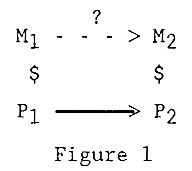Emergentism
Philosophical perspective on the nature of complex systems
Emergentism is a philosophical perspective that posits that higher-order properties, patterns, or behaviors emerge from the interactions of simpler elements. These emergent properties are not reducible to, nor predictable from, the properties of the individual components. Emergentism is often discussed in the context of philosophy of mind, philosophy of science, and systems theory.
Overview[edit | edit source]
Emergentism suggests that complex systems exhibit properties that are not present in their individual parts. These properties arise from the interactions and relationships between the parts. For example, the wetness of water is an emergent property that arises from the interaction of hydrogen and oxygen atoms, which individually do not possess the property of wetness.
Types of Emergentism[edit | edit source]
Emergentism can be categorized into different types based on the nature of the emergent properties and the systems in which they occur:
- Weak Emergentism: This form of emergentism holds that emergent properties can be explained by the interactions of the system's components, even if they are not easily predictable. Weak emergentism is often associated with complex systems and chaos theory.
- Strong Emergentism: This form posits that emergent properties are fundamentally novel and cannot be fully explained by the properties of the system's components. Strong emergentism is often discussed in the context of consciousness and qualia.
Applications[edit | edit source]
Emergentism has applications in various fields, including:
- Biology: In biology, emergent properties are observed in the behavior of ecosystems, organisms, and cellular processes. For example, the coordinated behavior of ant colonies and the functioning of the human brain are considered emergent phenomena.
- Sociology: In sociology, emergentism is used to explain social phenomena such as culture, social norms, and institutions. These phenomena arise from the interactions of individuals within a society.
- Computer Science: In computer science, emergentism is relevant in the study of artificial intelligence and machine learning. Emergent behavior can be observed in neural networks and multi-agent systems.
Criticisms[edit | edit source]
Emergentism faces several criticisms, particularly from proponents of reductionism, who argue that all phenomena can ultimately be explained by the properties of their constituent parts. Critics also question the explanatory power of emergentism, suggesting that it may be more descriptive than explanatory.
See also[edit | edit source]
References[edit | edit source]
| Philosophy of science | ||||||||||||||
|---|---|---|---|---|---|---|---|---|---|---|---|---|---|---|
* Category
|
This article is a philosophy-related stub. You can help WikiMD by expanding it!
Search WikiMD
Ad.Tired of being Overweight? Try W8MD's physician weight loss program.
Semaglutide (Ozempic / Wegovy and Tirzepatide (Mounjaro / Zepbound) available.
Advertise on WikiMD
|
WikiMD's Wellness Encyclopedia |
| Let Food Be Thy Medicine Medicine Thy Food - Hippocrates |
Translate this page: - East Asian
中文,
日本,
한국어,
South Asian
हिन्दी,
தமிழ்,
తెలుగు,
Urdu,
ಕನ್ನಡ,
Southeast Asian
Indonesian,
Vietnamese,
Thai,
မြန်မာဘာသာ,
বাংলা
European
español,
Deutsch,
français,
Greek,
português do Brasil,
polski,
română,
русский,
Nederlands,
norsk,
svenska,
suomi,
Italian
Middle Eastern & African
عربى,
Turkish,
Persian,
Hebrew,
Afrikaans,
isiZulu,
Kiswahili,
Other
Bulgarian,
Hungarian,
Czech,
Swedish,
മലയാളം,
मराठी,
ਪੰਜਾਬੀ,
ગુજરાતી,
Portuguese,
Ukrainian
Medical Disclaimer: WikiMD is not a substitute for professional medical advice. The information on WikiMD is provided as an information resource only, may be incorrect, outdated or misleading, and is not to be used or relied on for any diagnostic or treatment purposes. Please consult your health care provider before making any healthcare decisions or for guidance about a specific medical condition. WikiMD expressly disclaims responsibility, and shall have no liability, for any damages, loss, injury, or liability whatsoever suffered as a result of your reliance on the information contained in this site. By visiting this site you agree to the foregoing terms and conditions, which may from time to time be changed or supplemented by WikiMD. If you do not agree to the foregoing terms and conditions, you should not enter or use this site. See full disclaimer.
Credits:Most images are courtesy of Wikimedia commons, and templates, categories Wikipedia, licensed under CC BY SA or similar.
Contributors: Prab R. Tumpati, MD

